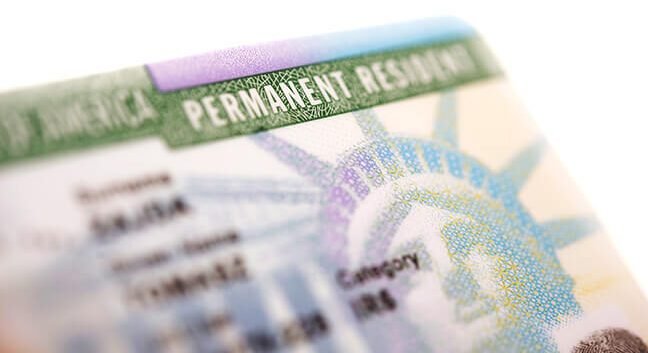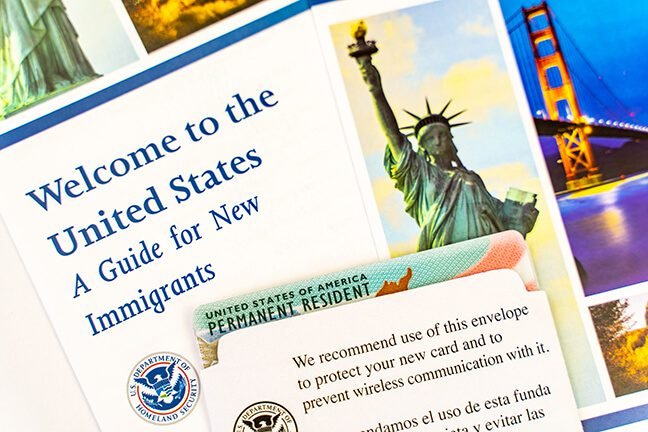Did you know that there are over 12.9 million lawful permanent residents in the United States? This number is constantly growing as more and more people come to live and work in America.
If you are one of the many people who have obtained a green card, it’s important that you understand your rights and responsibilities.
In this blog post, we will discuss everything you need to know about being a lawful permanent resident in the US.
What is meant by Lawful Permanent Resident?
A Lawful Permanent Resident (LPR), commonly referred to as a Green Card Holder, is an immigrant who has been granted permission to live and work permanently in the United States. As an LPR, you have many of the same rights as a U.S. citizen, including the right to live permanently in the United States, grant legal employment eligibility, own property, attend public schools, and receive Social Security and Medicare benefits.

How do I Prove I Have Lawful Permanent Residence?
You can prove that you have lawful permanent residence in the United States by carrying your green card with you at all times. It is also a good idea to keep other important documents, such as your passport and birth certificate, in a safe place where you can easily access them.
How do I Apply for a Permanent Resident Card?
You can apply for your Permanent Resident Card (also known as a Green Card) through the United States Citizenship and Immigration Services (USCIS). The process can take several months, so it’s important to start your application as soon as possible.
What are the Requirements for Obtaining a Permanent Resident Card?
There are a few different requirements that you must meet in order to be eligible for a Permanent Resident Card. First, you must have been lawfully admitted to the United States as a permanent resident. Secondly, you must not have any pending applications for asylum or refugee status.

Where Do I Pick up My Green Card?
After you entered the U.S. as a permanent resident and paid the immigrant visa fee, you should receive your physical card approximately 90 days after entry.
If you have not paid the fee, it will be 90 days after the date you make your payment.
What if I lose my Permanent Resident Card?
If you lose your Permanent Resident Card, it is important to replace it as soon as possible. You can replace your card by filing Form I-90, Application to Replace Permanent Resident Card, with the USCIS.
How Long Does Lawful Permanent Resident Status Last?
LPR or green card holders’ status lasts until you complete the naturalization process or lose or abandon your status.
How Often Do I Need to Renew My LPR card?
You should renew your 10-year Green Card six months before expiration or immediately after it has expired. For a complete list of instructions, visit www.uscis.gov.
If you have a 2-year conditional permanent residency, you’ll need to remove the conditions first at least 90 days before the two year expiration date. For a complete list of documents and the process, visit the USCIS site on “How do I renew or replace my permanent resident card?“
How Can I Lose My LPR Status?
You can lose your LPR status if you commit a crime, fail to file your taxes, or leave the United States for an extended period of time. If you are unsure about whether or not you have maintained your LPR status, it is important to speak with an immigration attorney.
Can Green Card Holders Receive Government Assistance?
Yes, green card holders are eligible for government assistance programs such as SNAP, Medicaid, TANF, HUD, Lifeline & ACP, and other programs by meeting certain eligibility requirements. They may include:
- The person or their spouse has worked in the U.S. for at least 5 years and paid taxes for a minimum of 40 quarters.
- Veterans or Active Military
- LPR children may be eligible for assistance benefits without the 5-year wait period
- Certain states may provide assistance with the 5-year wait period.

Can I Travel Outside the U.S. as a Permanent Resident?
People with permanent residency status in the United States are allowed to travel outside of the country but must show a valid alien registration card and an unexpired passport from another nation when they return to the U.S.
Every time you come back to the United States, you need to meet the same admission criteria as when you were originally granted permanent resident status. Some examples include being in good health, not having committed certain crimes, and not being a security or terrorism risk. You also can’t misrepresent yourself or lie about claiming US citizenship.
How to Become a U.S. Citizen with a Green Card?
The naturalization process requires a foreign citizen to wait a minimum of 5 years after receiving permanent residency before they can apply.
Immigrants who arrived through their spouses must wait three years before applying to become a U.S. citizen.
Additional requirements for naturalization include:
- Good moral character
- Ability to read, write and speak English
- You must have lived in the U.S. as a permanent resident for at least 5 years and physically been present in the country for at least half of those years to apply for naturalization
- A thorough understanding of past and present United States history as well as how the government works.
- An understanding the responsibilities of a US citizen
- You must reside in the state or USCIS district for at least 3 months preceding the application.

Time Goes By Quickly
It is important to keep track of your Green Card expiration date and any renewal procedures you will need to do.
If you plan to become a U.S. citizen, start preparing for the exam one year in advance to give yourself enough time to prepare well and enjoy all the benefits U.S. citizenship brings.

